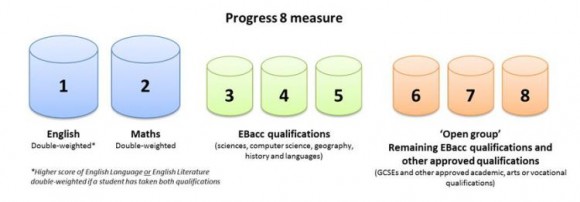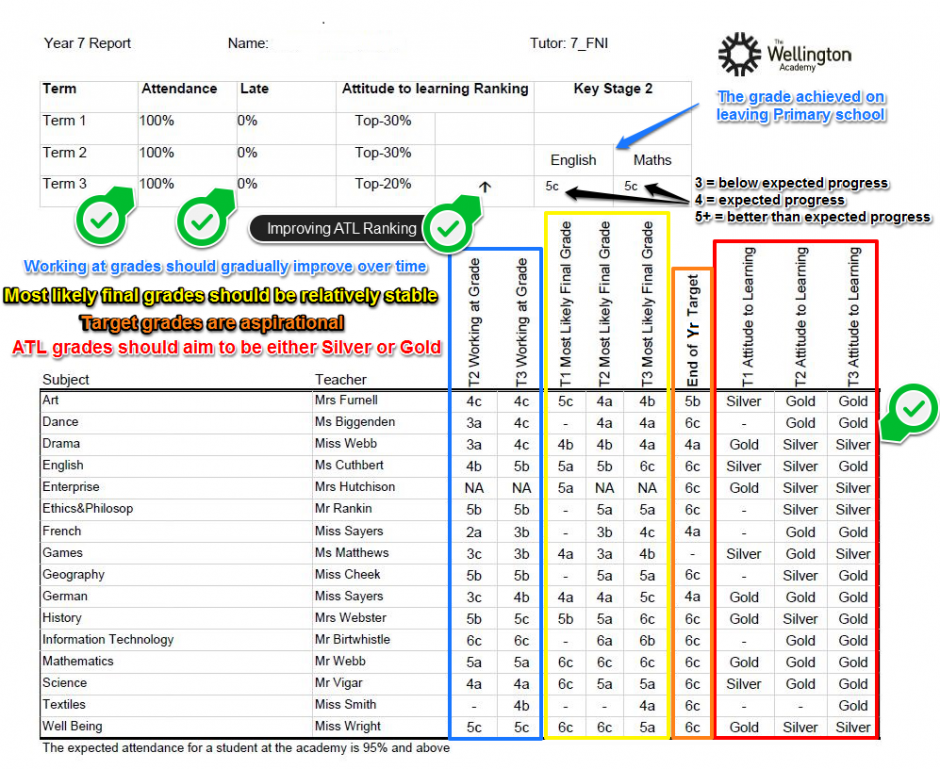There are a handful of blogs posts, from established school leaders and interested parties reviewing curriculum planning at the moment, here and here. It is that time of year. Options evening are being scheduled, Assistant and Deputy Headteachers / Principals are introducing various pathways, defining the curious rubrics and urging parents and carers of Generation C to returns their forms by said date, to give them the best chance of pursuing their preferred option choices. Meanwhile, the curriculum (GCSE, A Level and Vocational) reform, and the subsequent accountability is still being refined, and why add a momentous SEN reform to boot.
A raft of major changes across education begins to take effect this year. Here is a guide to the main points and milestones with the latest updates – which are prone to minor amendments.
Curriculum
- The revised National Curriculum becomes statutory in September 2014 in all maintained secondary schools, except for core subjects in Key Stage 4.
- Academies, free schools and UTCs do not have to follow the National Curriculum but will need to pay attention to core subject programmes of study as the reformed GCSEs will be based on them.
- The subject structure has not changed except that ICT becomes computing and languages become statutory in Key Stage 2,(Computing also included in EBacc)
- There is guidance on personal, social, health and economic education (PSHE) but this is non-statutory.
- National Curriculum attainment targets and levels are removed. Schools are free to adopt a system of their own choosing to record and report progress.
- At KS2 pupils will continue to follow the current programmes of study in 2014-2015 and take tests based on levels in 2015 but in 2016 there will be new KS2 tests. The assessment structure for these tests has not yet been decided.
GCSE reform
- All GCSEs are to be reformed.
- New English (language and literature as two separate qualifications) and maths will be available for first teaching in 2015 – first examining in 2017. The content will be greater the new exams will be graded 1 to 9. 9 being the highest. Exams will be linear and there will be no teacher assessment but tiering will remain in maths.
- From 2017 November resits will only be available in English language and maths for students aged 16 or over.
- Other GCSE subjects will be reformed for first teaching in 2016, first examined in 2018. All existing subject titles will be reviewed to see whether they fit the definition of a GCSE and, if so, they will be revised in a similar structure to English and maths. Ofqual will be consulting on the assessment structures for these other subjects and are currently in the process of seeking examining experts.
- Ofqual will also consult on the standards of the reformed GCSEs. Decisions are yet to be taken about the value of the new grades and how these will be awarded.
In the meantime I have been successful in my application for one of the “external Ofqual expert” roles, working on the accreditation of qualifications through to monitoring and comparing standards across groups of qualifications. More to follow as I learn more about the role.
A level reform
- All A levels will become linear, two-year courses with exams only at the end of the course. AS will continue to exist as a separate qualification. The content will be co-teachable with the first year of the A level course but the exams will not be at A level standard and the results will not count towards the A level result.
- The future of AS depends largely on the value that university admissions tutors place on them (that is as yet an unknown). A strong voice of discontent is still being voiced, though according to ASCL the position is unlikely to change.
- Very little change expected here, and these qualifications will be reformed for teaching in 2015, examining in 2017 (A level) and 2016 (AS level): the English suite, all sciences, history, geography, psychology, art and design, sociology, business studies, economics, and computing.
- Maths, further maths and languages require more work and will be reformed for first teaching in 2016 and first examining in 2018, along with all other remaining subjects. A new body led by universities, the A-level Content Advisory Board (ALCAB), will be involved.
- A level and AS grades and standards will not change.
- A useful A Level timeline ca be found here.
Vocational qualifications
- At KS4, schools may use any qualification from list 96 but only those on the DfE-approved list will count as equivalent to one GCSE for performance tables. This list is updated annually in November/December.
- From 2014 qualifications will only be included if they are the same size as a GCSE or larger and each qualification will count as one in the tables, irrespective of size.
- A maximum of two non-GCSE qualifications will be included in the performance tables and measures.
- At post-16, schools and colleges are free to use a variety of qualifications but to be counted in performance tables qualifications will have to meet criteria similar to those in place at KS4. The first list giving interim recognition was published in December 2013 and will be updated annually as qualifications change to meet the new criteria. These qualifications are divided into ‘applied’ (that have a general vocational slant and provide progression to employment or HE) or ‘technical’, which aim to meet workplace requirements and need employer support.
Accountability
- The biggest change will come in 2016 when the ‘best eight progress measure’ replaces five A*-C (including English and maths) as the main measure of accountability. The measure is an average of the best eight score achieved by every student in Year 11 based on progress from KS2 results.
- Floor targets will be based on this new measure.
- The best eight has to include GCSE English and maths, plus any three subjects from history, geography, computing, any language – ancient or modern, and any science subject, plus any three other GCSEs or equivalent vocational qualifications that are listed by the DfE.
 Maths and English will be double counted (but this only applies in English if the student has entered for English language and literature – otherwise it would count singly). The better result from language and literature will count.
Maths and English will be double counted (but this only applies in English if the student has entered for English language and literature – otherwise it would count singly). The better result from language and literature will count.- Key here is that the better grade of GCSE Language and GCSE Literature will be double weighted. The lower grade falls into the open groups of three subjects providing it is still one of the best 8, which is probable. The key point is that double weighting only happens if BOTH GCSEs are taken. As you can see from the technical guidance, not sitting both English GCSEs would potentially drag the students points score down significantly. Though theoretically possible for a student to focus on Eng Language – it is more logical to focus on both, with the students better result double weighted, while the other GCSE still counting.
- The KS4 science curriculum is compulsory. Double science will count as two slots, and core and additional science GCSE will take up one slot each in the Progress 8 measure. Core science GCSE alone will only count as one slot. Separate GCSEs in biology, chemistry, physics and computer science each count as one slot.
- From 2016, there will be no GCSE Single Award in Combined Science, and so this qualification will not be reported from 2018 performance tables onward . The Department will be consulting on new science GCSEs in spring 2014 for teaching from 2016. It is expected that these will offer more challenging content than the present courses.
- Dance and drama are NOT discounted, art and photography decision pending
SEN
- The Children and Families Bill 2013 currently making its way through Parliament includes the new SEN Code of Practice that will come into force from 1 September 2014.
- One of the key aspects of the new legislation is the duty on health authorities to co-operate with schools and other organisations.
- Replacing SEN statements and learning difficulty assessments with an education, health and care plan or ECHPs for children and young people.
- It introduces the ‘local offer’ that covers the 0-25 age
- It presents a reasonably lengthy transition period of up to three years to convert existing statements to ECHPs.
- It is currently unclear as to how the funding for ‘additional SEN’, the single category that covers School Action and School Action Plus, will work. (It centres on offering families personal budgets.)
- SEND Gateway – The SEND Gateway is currently under construction and will be an online resource for all education professionals working with children and young people with SEND aged 0–25. The Gateway will promote multi-agency working and the development of personalised education solutions. More on the gateway here.
Legal definition
- The legal definition of SEN hasn’t changed in the new code but there’s a strong emphasis on moving away from securing additional hours of support to ensuring that students make at least the expected progress.
- The strategic role of the SENCo in leading the development of high-quality learning experiences in all classrooms for SEN students will be crucial to future success.
- There appears to be a strong focus on defining SEN in ‘medical’ terms and a move away from anything that relates to behaviour or mental health.
- All references to emotional and behavioural difficulties (EBD) appear to have been removed, and this raises concerns about the potential lack of access to resources and support and the subsequent effects that can be seen in terms of inclusion.
- Health services will be legally obliged to engage with schools, colleges and particularly students with an ECHP and there will be a strengthened local offer.
- The role of the SENCo will be strengthened, with improved and more detailed (statutory) training, particularly focusing on SEN students receiving very high-quality teaching within the classroom and a reduction in students being withdrawn from lessons and moved away from their peers.
- We will move away from a focus on the number of hours of support a student that is entitled to and focus on what we want children to be able to do, that is, specific outcomes and progress.
- The rights of parents and guardians to be involved in decisions about their children’s provision may be strengthened.
Progress 8 School Performance Measure – March 2014
Progress 8 Measure in 2016 – Technical Guide – March 2014
[qr_code_display]
Much on the content is taken from the informative ASCL documents, government press releases and wider reading.



Great summary, thanks!
“It is currently unclear as to how the funding for ‘additional SEN’, the single category that covers School Action and School Action Plus, will work. (It centres on offering families personal budgets.)”
The funding for SEN without a statement/EHC plan won’t be any different than it is now: schools forums determine the formula for distribution. The Personal Budgets are part of the High Needs funding block, for which an EHC plan would be required.
Thank you Alex, I definitely appreciate your contribution. If you have an area of specialism and would consider contributing here, it would be fantastic to hear your thoughts.